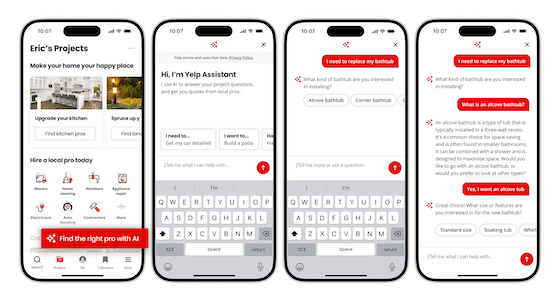Ghost kitchens — those tech-driven facilities built to service delivery-only restaurants — have become increasingly dominated by brands and celebrities. Major brands, particularly in the QSR space, have gone all in, often with unique delivery-only brands.
So it’s not surprising to see the Mexican food chain Chiptole invest in the space. Yesterday, Chipotle announced a $50 million fund called Cultivate Next. The fund, according to Chipotle, will invest in “seed to Series B stage companies that can accelerate the Company’s strategic priorities such as running great restaurants, amplifying technology and innovation, further advancing its Food With Integrity mission, and expanding access and convenience for consumers.”
Chipotle is the fund’s sole investor. While the fund isn’t targeted exclusively to ghost kitchens, that is likely to be a key element, given most conversations around foodtech begin with ghost kitchens. Though there is a lot more going on in foodtech than just ghost kitchens. For example, using AI and robotics to make food production more efficient. And perhaps less dependent on high-churn wage workers. And there is the whole movement toward autonomous delivery that is at least adjacent to the movement to digitize restaurants.
“We are exploring investments in emerging innovation that will enhance our employee and guest experience, and quite possibly revolutionize the restaurant industry,” said Chipotle’s CTO Curt Garner. “Investing in forward-thinking ventures that are looking to drive meaningful change at scale will help accelerate Chipotle’s aggressive growth plans.”
Making Food Less “Peopley”
A big part of this is Chiptole staking out ground as a foodtech leader and innovator. For example, the company has been testing an AI robot named Chippy to cook — you guessed it — tortilla chips. The company is also playing around with an RFID system to track food ingredients. The company hopes this will make preparation much more efficient.
Chiptole has also deployed a machine-learning-driven scheduling tool and has invested in the autonomous delivery company Nuro.
Back to ghost kitchens, Chipotle is also among the major dining brands that have branched out into the virtual dining space.
For example, Chick-fil-A has launched a virtual restaurant brand called “Little Blue Menu” in Nashville and Atlanta. The company already operates delivery-only locations under the Chick fil-A brand with ghost kitchen operators CloudKitchens and Kitchens United. Little Blue Menu is the company’s first virtual brand.
In 2020, Chipotle rolled out its first Chipotle Digital Kitchen in Highland Falls, New York. Consumers can pick up orders in the unit’s lobby. Or they can just have them delivered. All orders had to be placed via Chipotle’s website or one of the delivery aggregators. This move had a clear pandemic angle given the timing. But Chipotle said the real purpose was to experiment with stores that could fit in small spaces in urban environments.
This fund signals how important technology will be for restaurants in the future. Considering tight labor markets, rising costs, and an increasingly omnichannel industry, efficiency is king. Even more so than ever before. How long will it be before Chippy’s brother Hammy is cooking your burgers? And when will it become commonplace for cousin Nuro to bring that burger to your front door?





